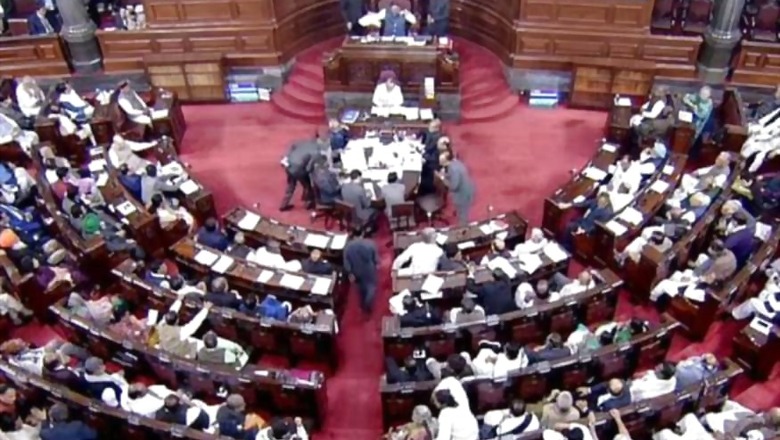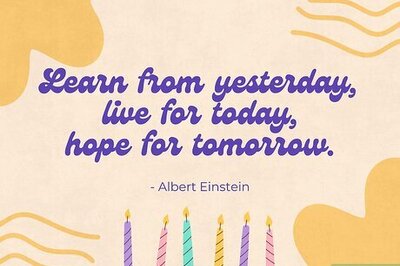
views
New Delhi: Even before the Citizenship (Amendment) Bill (CAB) was tabled in the Rajya Sabha, it had become quite apparent to everyone that the Bharatiya Janata party-led government had the required numbers to pass it through the upper House. Given the support the bill received in the Lok Sabha on Monday, particularly from a few non-NDA parties, it became more or less certain that the bill would pass the Rajya Sabha test, which is exactly what happened on Wednesday.
The contentious bill, aimed at amending the Citizenship Act, 1955 to make non-Muslim migrants from Afghanistan, Bangladesh and Pakistan eligible for Indian citizenship, was passed by the Rajya Sabha with a crucial support from not just the BJP’s partner the Janata Dal (United) but also from non-NDA members like the Biju Janata Dal (BJD), YSR Congress Party (YSRCP) and Telugu Desam Party (TDP).
Overall, it was passed with 125 votes in favour of it and 105 votes in its opposition.
It were votes from the JD(U) and BJD that perhaps were the most crucial to swing the whole deal in BJP’s favour. The two parties together had 11 members in the house and though both these parties had voted in favour of the bill in the Lok Sabha as well, there were speculations over at least the JD(U) reconsidering its position a day after the bill was passed in the lower House.
The Nitish Kumar-led JD(U) had till recently been in opposition of the National Register for Citizens (NRC) and CAB, notwithstanding its alliance with the BJP, holding that the move discriminated against the Muslim population and could trigger massive unrest in the northeast.
When the party voted for the legislation in the Lok Sabha on Monday, the support brought internal disagreements to the fore with party vice-president Prashant Kishore expressing disappointment moments after the passage of the bill in the lower House, saying the legislation discriminates against people "on the basis of religion".
Although the JD(U) MPs clearly indicated that there was no change in the party's position on the issue, Kumar’s silence encouraged speculations that if the party decided to make a U-turn, the going might get tough for the BJP. Eventually, however, it turned out well for the saffron party.
Contrary to this, it was less likely for the BJD to vote against the bill after having voted in favour of it the Lok Sabha.
Similarly, All India Anna David Munnetra Kazhagam (AIADMK), which was under pressure after criticism for supporting the bill despite the fact that it excluded Sri Lankan Tamil refugees, contributed 11 consequential votes to the ruling party’s kitty.
On the other hand, Shiv Sena, which had supported the bill in Lok Sabha, shifted its position before staging a walkout during voting in Rajya Sabha. This, too, aided the government by bringing the majority mark further down from 121.
Earlier, the House rejected motions to send the bill to a select committee, with 124 members voting against it as compared to 99 in its favour. It also rejected several amendments moved by the opposition members.
Moreover, the legislation was passed even as Assam and its neighbouring states in the northeast witnessed intense protests on against the bill. Guwahati was placed under indefinite curfew and mobile internet services were cut-off for 24 hours beginning 7pm on Wednesday, with Tripura already facing a 48-hour internet blockade.




















Comments
0 comment